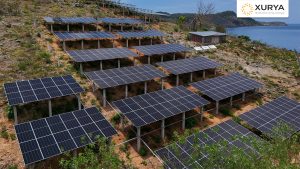Jakarta – The transformation to clean energy is not enough to be echoed through a grand narrative. Head of the Human Resources Development Agency (BPSDM) of the Ministry of Energy and Mineral Resources (MEMR), Prahoro Yulijanto Nurtjahyo, asserted that the energy transition must be realised through concrete actions that create economic value, especially in the form of employment.
“If there are no projects, then there are no jobs. It’s as simple as that,” said Prahoro when speaking at the Energy Mineral Festival 2025 discussion session, which was broadcast online on Thursday, 31 July. According to him, building an energy transition narrative without execution will only be an illusion.
He gave an example of a solar power plant (PLTS) development project by New Wheel that was constrained due to the lack of skilled labour. “Finding competent solar panel installation technicians is still difficult. This shows that our human resources are not fully prepared to enter this sector,” said Prahoro.
The labour issue is crucial because the energy transition is not only about replacing fossil energy sources, but also about social and economic transformation. MEMR’s BPSDM noted that there are 3,764 types of jobs emerging in the energy sector, including the green energy subsector. However, only 487 jobs are entirely new; the rest are old jobs that require increased competence according to new challenges.
Of Indonesia’s total labour force of 140 million, only around 34 million people have vocational education, and around 15 million have a bachelor’s degree or higher.
“We are now in the demographic window that will peak in 2030 – just five years away. If not utilised, this opportunity will be lost,” Prahoro warned.
He emphasised the importance of cross-sector collaboration between the government, industry, educational institutions and the media to accelerate the preparation of human resources for the energy transition. Education curricula and training programmes, according to him, must be aligned with the competency needs of the future energy industry, especially in the new and renewable energy (NRE) sector.
“We have prepared a map of work needs and competencies. It is just a matter of how universities and training institutions can utilise and adjust quickly. It’s a race against time,” he emphasised.
Appropriate certification and training schemes are also key. Without a well-prepared workforce, NRE projects could be delayed or even fail to be realised, resulting in lost potential for job creation and investment.
Prahoro concludes that the success of the national energy transition is primarily determined by the extent to which the country can build a strong human resources foundation.
“Narratives are good, but if they do not give birth to real projects and work, then we are just repeating the old mistakes: a lot of talk, minimal results,” he concluded. (Hartatik)
Banner photo: Image generated by OpenAI’s DALL·E via ChatGPT (2024)















